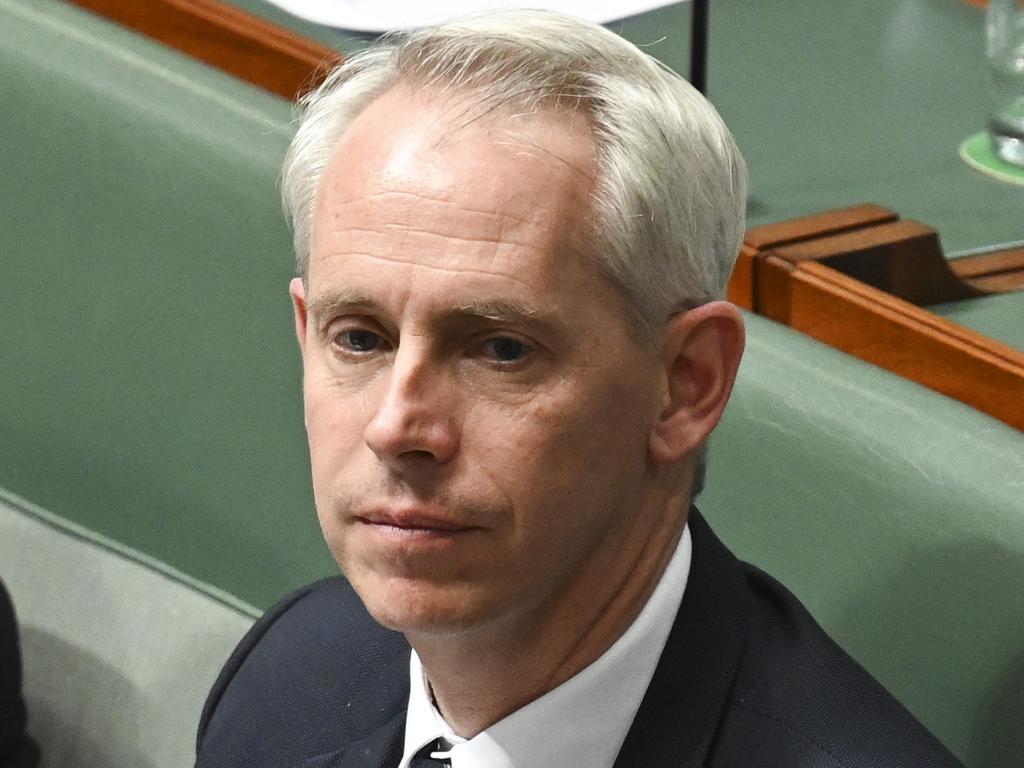
Boats transporting illegal migrants land so frequently they no longer make the headlines. Since Keir Starmer became Prime Minister at the start of July, there have been 87 “uncontrolled landings”, as the Home Office delicately calls them. That’s another 5000 asylum-seekers to be fed, housed and processed as guests of the UK government on top of the 31,000 who arrived under the Conservatives last year, and the 96,000 who arrived in the three years before that.
The Labour government’s response to the crisis is to do precisely nothing. The last thing it wants to do is incur the wrath of the European Court of Human Rights, to which Britain remains beholden, nine years after the British people voted for Brexit.
Asylum-seekers are housed in pop-up detention centres run by private contractors such as the Britannia Inn in Stockport or the Holiday Inn Express in Rotherham, which were the focus of unruly protests in early August.
The government won’t confirm how many provincial hotels have been requisitioned, and editors are discouraged from publishing their names. Still, the BBC reported last year that 395 hotels had been requisitioned, housing 51,000 asylum-seekers at a cost of more than £6m ($12m) a day, or around $4.4bn a year, a figure that appears to be a gross underestimate.
The political class may have lost control of the borders, but it has an iron grip on the narrative. To suggest there might be underlying causes to the recent civil disturbances is strictly taboo. Those who come close stand accused of justifying hate crime or may even face charges of being an actual hate criminal, the equivalent of being labelled an enemy of the people in Enver Hoxha’s communist Albania.
It is a catch-all charge laid against anyone who deviates from the party line, which is that the multicultural, globalist project would work fine if these people would only shut up.
The alternative interpretation is that the riots are a manifestation of the pent-up frustration among many Britons who want a say in who comes to their country and how they come. The longer the British establishment keeps its ear turned and tries to suppress serious discussion, the more it will fester.

The truth, however unpalatable, is that the vision of the anointed has turned out to be a horrible, socially destructive and probably irreversible mistake. Trust in the British government’s ability to control immigration has disappeared outside the London bubble. The British stiff upper lip is being tested every day in provincial towns and cities where wedding receptions are cancelled, business conferences relocated, and golf courses fenced off to make room for the archipelago of mini-Christmas Islands housing people with no cultural connection with Britain or its people.
By comparison, immigration in Australia appears to be working like a dream, at least on paper. It has twice as many overseas-born residents per capita as Britain, the highest concentration in the OECD, excluding Luxembourg, which is different. Australia is the kind of country one goes to seek one’s fortune, while Luxembourg, with its generous tax rules, is the kind of place you go to keep it.
The broad acceptance of a proactive immigration policy is not an accident, nor can it be taken for granted. Visas must be granted selectively, and borders must be tightly controlled. Those who might seek to enter illegally must know Australia means business.
This represented the firm bipartisan consensus until the beginning of this century. Since 2001, however, Labor’s adherence to that principle has weakened by degrees, beginning with Kim Beazley’s equivocal response to the Tampa standoff. It fell apart during the Gillard government, but not so far that order couldn’t be restored by a determined incoming government.
Labor appeared to restore its support for sovereign borders in opposition but, as we now know, the malevolent growth of progressive ideology continued below the surface. Anthony Albanese’s misguided belief that the Australian government has a duty of care to displaced people from a lawless terrorist enclave is entirely consistent with his long-held belief that the Howard government should have accepted the Tampa asylum-seekers.

It stems from the dangerous idea that Australia’s commitment to universal human rights overrides its duty to protect the safety of its own citizens. It assumes that expenditure of compassion on a category of people in a faraway land should be a higher priority than the rights of its citizens, who merely want to know that new arrivals will keep the law and invest in the Australian dream.
The government’s inability to maintain overall immigration numbers at a sensible level is a public policy failure of epic proportions. The use of immigration policy as a stop-gap measure to deal with long-term, globally declining birthrates cannot continue forever.
We could go on: the craven response to the High Court decision on the rights of criminal non-citizens; cracks in border integrity; the failure to stand up to the universities on overseas students; the protracted and extensive avenues of appeal for migrants whose visas are withdrawn; the tolerance of two-tier policing of public rallies on Gaza, and; Albanese’s mealy-mouthed equivocation on anti-Semitism.
No post-war prime minister has tested the limits of public acceptance of an active migration policy as much as this one nor tested the strength of the social fabric by dismissing legitimate grievances. The lesson from the disastrous diversity experiment in Britain is clear: stop it before it is too late.








The eruption of ethnic tension in dozens of British towns and cities is a reminder of what happens when governments lose control of immigration.